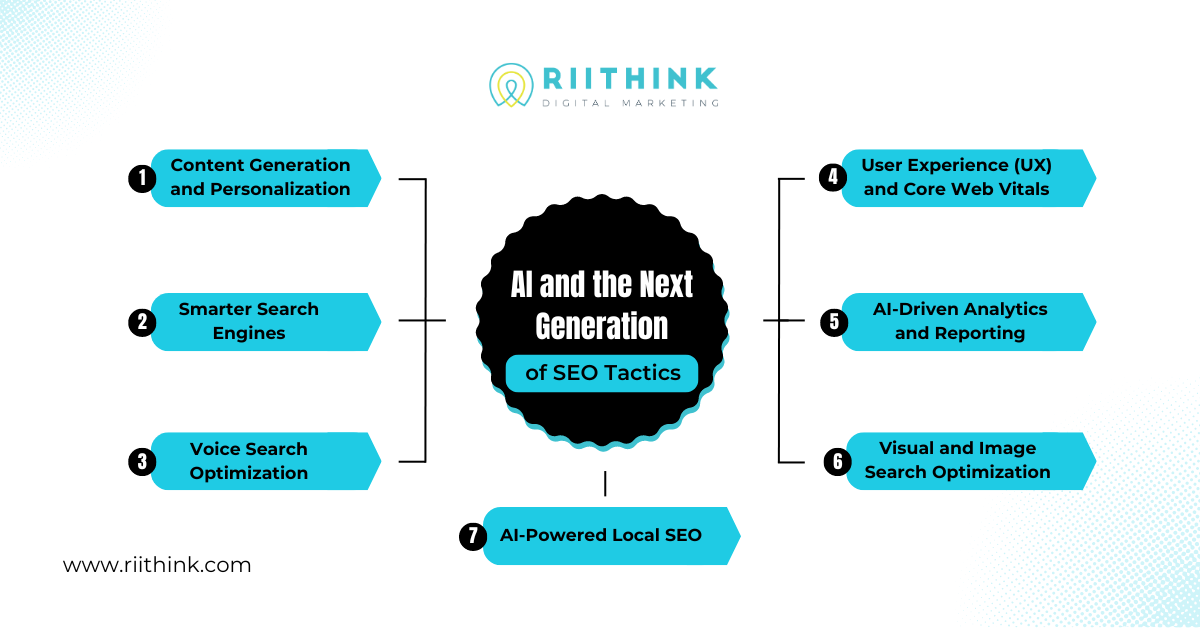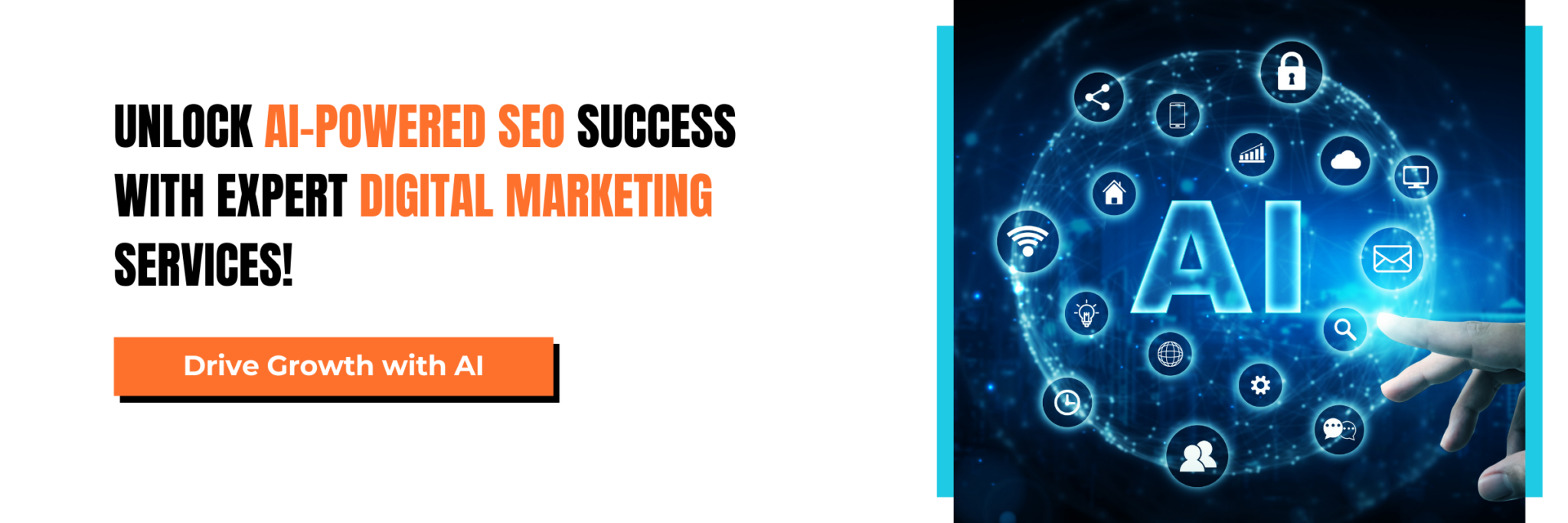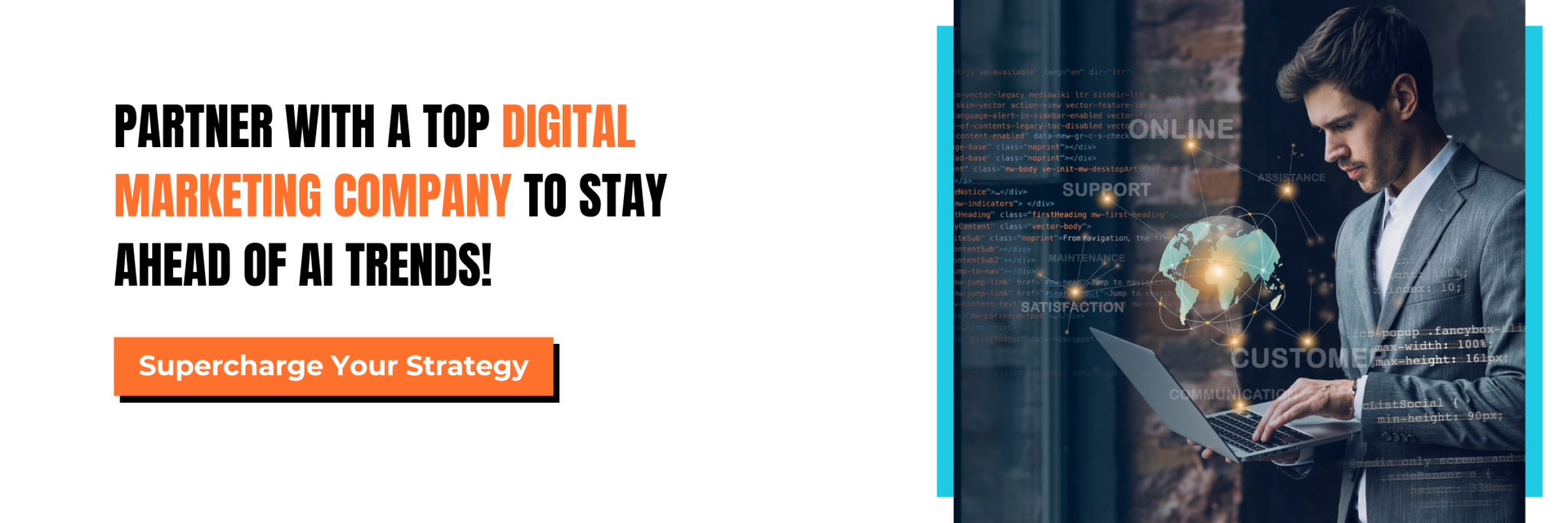Search engine optimization (SEO) has always been dynamic, constantly evolving to adapt to new technologies, user behaviors, and search engine algorithms. However, the recent advancements in artificial intelligence (AI) have sparked a transformative shift in how businesses approach SEO. With AI reshaping everything from content creation to data analysis, the synergy between AI and SEO is becoming critical for brands that want to stay competitive. Whether you are a business owner or an SEO services provider in USA, understanding these AI-driven changes is crucial to optimize your website effectively.
This blog will explore how AI changes SEO and the key shifts in search optimization. By staying informed, you can leverage AI for digital marketing success and ensure your business ranks high on search engines. After all, SEO is the backbone of any effective digital marketing strategy.
- By 2027, the AI sector is anticipated to grow to $407 billion, driven by a compound annual growth rate of 36.2% since 2022.
- Forbes Advisor found that 64% of businesses expect AI to boost their productivity, showcasing a rising belief in AI’s role in simplifying operations.
Role of AI (Artificial Intelligence) in SEO
Artificial intelligence is no longer a futuristic concept in SEO; it’s now a reality shaping search engines, digital marketing, and the user experience. When integrated with SEO strategies, AI tools can help automate and optimize content, personalize the user experience, and offer insights into user intent that were previously impossible to gather manually.
Here are some ways AI is changing the SEO landscape:
- Automated Content Creation: AI tools can generate content at scale, helping businesses meet the growing demand for fresh, optimized material. Tools like GPT-4 and others analyze search trends, user behavior, and competitive content to create SEO-friendly content that resonates with target audiences.
- Understanding Search Intent: AI helps search engines understand the user’s intent behind each query. Google’s AI-based BERT and MUM updates are perfect examples of this shift. By leveraging natural language processing (NLP), AI makes search results more relevant and personalized.
- Enhanced Keyword Research: Traditional keyword research is evolving as AI can process and predict keyword performance more effectively. AI-driven tools analyze large datasets, offering insights into trending keywords, competitive landscapes, and semantic search optimization.
- Predictive Analytics: AI tools help marketers predict which SEO strategies will perform well by analyzing historical data and trends. These insights make it easier to focus on the tactics that will deliver the best results.
Top Key Shifts in SEO (Search Engine Optimization) Due to AI
As AI continues to disrupt SEO, several key shifts emerge in how businesses approach search optimization. Understanding these shifts and integrating AI-powered solutions into your strategy is essential to keeping your business ahead of the curve.

1. Content Generation and Personalization
One of AI’s most noticeable changes to SEO is its ability to generate and optimize content. AI-powered tools like Jarvis and Writesonic use deep learning to understand search intent and create highly relevant, engaging content. Using AI, businesses can efficiently produce blogs, articles, and even meta descriptions optimized for search engines.
Moreover, AI helps users personalize content. As personalization becomes increasingly important in digital marketing trends, businesses can leverage AI to deliver tailored content that matches user preferences, behavior, and previous interactions. This not only improves engagement but also boosts search engine rankings.
2. Smarter Search Engines
Search engines like Google have started to rely heavily on AI to understand complex queries, especially those with a conversational tone. AI-powered updates like RankBrain and BERT allow search engines to deliver more accurate results by analyzing the context of search queries rather than just focusing on keywords.
As a result, businesses need to shift their focus from pure keyword optimization to optimizing content for user intent. Developing content that answers users’ questions clearly and concisely and covers topics in depth is essential.
3. Voice Search Optimization
With AI-driven voice assistants like Siri, Alexa, and Google Assistant becoming more popular, voice search is now a critical part of SEO. People use voice search differently from text search—they ask more direct, conversational questions. This shift means businesses need to optimize their content for natural language queries.
Voice search optimization strategies include:
- Using long-tail keywords and question-based phrases
- Structuring content to answer specific questions (think FAQs)
- Optimizing for local search, as many voice searches are location-based
Businesses offering SEO services must adapt to this change to capture the growing audience that uses voice search to find products and services.
4. User Experience (UX) and Core Web Vitals
AI has also significantly impacted user experience (UX) design, which is now more critical than ever for SEO. Google’s Core Web Vitals, a set of user-focused metrics that measure the loading performance, interactivity, and visual stability of web pages, play a critical role in search rankings.
AI tools help monitor and enhance UX by:
- Analyzing user behavior to predict which design elements will improve engagement
- Providing insights into site speed, mobile optimization, and visual layout
- Enhancing personalization by suggesting content based on user preferences
Optimizing for UX isn’t just about faster websites; it’s about creating a seamless, enjoyable experience for your visitors. As AI continues to evolve, it will drive even more changes in how businesses approach UX for SEO.
5. AI-Driven Analytics and Reporting
AI tools have revolutionized how businesses approach analytics and reporting. Traditional analytics platforms required manual data gathering and analysis, but AI can now automate these processes, providing deeper insights faster.
AI-driven SEO tools, like Moz, Ahrefs, and SEMrush, offer predictive analytics and automated reporting, helping businesses track their rankings, identify new keyword opportunities, and monitor competitor strategies. These tools can also forecast future trends, allowing businesses to adjust their strategies proactively.
6. Visual and Image Search Optimization
AI has also brought significant changes to visual search, enabling users to search using images rather than text. Tools like Google Lens and Pinterest Lens allow users to upload an image and find visually similar results or related content. AI-powered algorithms can analyze image content, including shapes, colors, and objects, to deliver accurate results.
To optimize for visual search, businesses should:
- Use high-quality, descriptive images with optimized alt text
- Leverage structured data to provide context for images
- Include image sitemaps to help search engines discover images
7. AI-Powered Local SEO
AI is transforming local SEO by helping businesses provide hyper-localized results based on user proximity and intent. With AI-powered algorithms, search engines like Google can better understand location-based queries and deliver more accurate local results, especially for “near me” searches. AI can analyze data from maps, social signals, and reviews to rank businesses more effectively for local searches.
To improve local SEO, businesses should:
- Optimize Google Business profiles with accurate location and services
- Encourage and manage customer reviews regularly
- Use location-based keywords in content
Leveraging AI for SEO Success
Given AI’s massive impact on SEO, businesses need to start incorporating AI-driven tools into their digital marketing strategies to stay competitive. Here are some ways AI can be used to boost SEO:
- Content Optimization: AI-powered tools analyze keyword density, readability, and relevance to help businesses produce high-quality content that ranks well on search engines.
- Improved User Intent Targeting: AI tools can more effectively analyze user search intent, allowing businesses to tailor content to meet the specific needs of their target audience.
- Voice Search Optimization: Optimize for conversational keywords and questions that people will likely use when conducting voice searches.
- Predictive Analytics: AI helps forecast which SEO strategies will likely succeed based on historical data, allowing businesses to allocate resources more efficiently.
By leveraging these AI-powered solutions, businesses can enhance their SEO strategies and ensure they’re prepared for future changes in the digital marketing landscape.
How to Stay Ahead of the AI-SEO Curve
As AI continues to evolve, SEO best practices will also change. Here are some strategies to ensure your SEO remains competitive:
- Embrace AI Tools Early: Optimize your SEO using AI tools to stay ahead of the competition. These tools can help with everything from keyword research to content generation and predictive analytics.
- Focus on User Experience: With AI increasingly emphasizing user intent and experience, make sure your website is fast, mobile-friendly, and optimized for a seamless UX.
- Adapt to Voice Search: To capture the growing number of voice-based queries, start optimizing your content for voice search now.
- Monitor AI Trends: Stay informed about AI developments and how they impact SEO. For example, keep an eye on new Google AI updates that could change the ranking algorithm and search engine landscape.
Final Thoughts
The integration of AI into SEO has ushered in a new era of search optimization. From content generation to predictive analytics, AI transforms how businesses optimize their websites and stay competitive. By leveraging AI for digital marketing, businesses can create a more efficient, targeted SEO strategy that delivers real results.
For those looking to stay ahead of the competition, partnering with a top digital marketing company like Riithink can ensure your business is leveraging the latest AI-driven SEO tools and strategies to succeed.
Whether you’re looking to optimize for voice search, enhance user experience, or boost your website’s visibility, AI-powered SEO is the future. For businesses in the USA seeking effective digital marketing services, now is the time to embrace AI and prepare for the future of SEO.
If you’re searching for a trusted SEO services provider in the USA or need help navigating these new AI-driven SEO trends, contact Riithink today to see how we can help your business grow!









One Comment